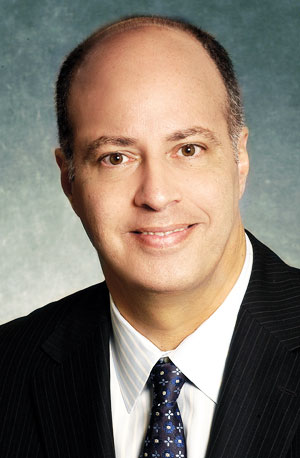The corporate tax cases that make their way into the court system today have a great deal more at stake and are far more complex than their predecessors.
Whereas a $1-million dollar case was a big tax case 10 or 15 years ago, briefs involving more than $100 million are now quite common. In that same period, the law has become more complex and amendments to the Income Tax Act have become more frequent than ever.

As well, while tax trials that took longer than three or four days to hear were rare, trials of several weeks or even months are now not uncommon. Litigation is also less friendly than it used to be, and counsel on both sides are more aggressive.
Still, the corporate tax litigation bar (on the taxpayer side) remains a select group.
“There are only about 10 lawyers in the country who do tax controversy cases on a full-time basis in the sense that they don’t do any tax planning or commercial litigation,” says Cliff Rand of Stikeman Elliott LLP’s Toronto office.
And even fewer show up on their feet regularly in the Tax Court, the Federal Court, or the Supreme Court on the corporate cases of significance.
This latter group has remained limited in number because the sheer volume of cases actually tried and decided in Tax Court and beyond have not proliferated.
“The big cases are concentrated in four or five or six practitioners and beyond that there are a lot of cases that are not so large in dollar terms,” says Tom Akin of McCarthy Tétrault LLP’s Toronto office.
Had there been significant increases in the numbers of major cases, that likely would have translated into growing demand for more senior lawyers. Instead, growth in size and complexity without growth in volume has resulted in a fairly static senior bar with increasing demand at more junior levels.
“The senior corporate tax litigation bar is the same size it was in the ‘70s,” says William Innes of Fraser Milner Casgrain LLP’s Toronto office. “It’s just that there are more people dabbling in the field.”
Not only is the senior bar the same size, but it’s populated by more or less the same individuals who have populated it for years.
“The people who attracted the work 10 years ago are still the same people,” says Al Meghji of Osler Hoskin & Harcourt LLP’s Toronto office. “On the other hand, since I came to Oslers’ five years ago, we’ve grown to five full-time tax litigation partners, so that the way I’m getting more work is by having a lot more people work with me - and I’m still swamped.”
According to Meghji, there are other factors that have limited growth of the senior tax litigation bar.
“Corporate tax litigation is such a specialized service that the consumers of the service tend to be very sophisticated directors of corporate tax departments who lean to individuals rather than law firms in choosing their counsel,” he says. “And they tend to know the small group they want to pick from and tend to choose from that small group.”
Otherwise, Meghji maintains corporate tax litigation requires a unique mindset.
“It’s got a big moat around it because you’ve got to have two competing characteristics,” he said. “You need a passion for the advocacy combined with a mind that’s tuned to very fine detail and to the archaic concepts of tax policy.”
Which may explain why a disproportionate number of this insular bar trace their roots to the other side of the fence as counsel with Justice Canada.
“It’s as if there’s only one womb for us,” Meghji says.
Another factor militating against the corporate tax litigation’s senior bar’s expansion is the in-house tax expertise at many large corporations.
“My experience is that companies with tax litigators in-house don’t take their cases to outside counsel unless there’s a very big issue,” says Warren Mitchell, who practises in Thorsteinssons LLP’s Vancouver and Toronto offices.
“What that means is that the three or four people at the very top of the bar get four or five cases a year each on which they go to trial. Other lawyers are lucky if they average out at one trial a year.”
It may also be that there’s something about tax litigation that favours seniority. After all, it remains a very esoteric practice where the stakes in the courtroom are extremely high, judgment is critical and experience is coveted.
Looking into the future, it’s not likely big corporate tax litigation will abate. And from all appearances, it may grow to accommodate more senior practitioners. Not only are high-stakes cases becoming more complex, but the CRA is poised to bring more of them.
The ITA keeps burgeoning, the agency has become more skilled in verification and enforcement, it has more resources and its techniques are more sophisticated, and increasing comity with other jurisdictions regarding policing and enforcement helps to swell the caseload.
Then there’s the dreaded general anti-avoidance rule, known as GAAR.
“When I started litigating, the big issue was whether the sale of the farm was an income or a capital item, but now we’re continuously delving into very complicated sections of the act,” Mitchell recalls. “GAAR, however, has added a general and unprecedented layer of complexity to what has already become very complicated.”

 As well, while tax trials that took longer than three or four days to hear were rare, trials of several weeks or even months are now not uncommon. Litigation is also less friendly than it used to be, and counsel on both sides are more aggressive.
As well, while tax trials that took longer than three or four days to hear were rare, trials of several weeks or even months are now not uncommon. Litigation is also less friendly than it used to be, and counsel on both sides are more aggressive.